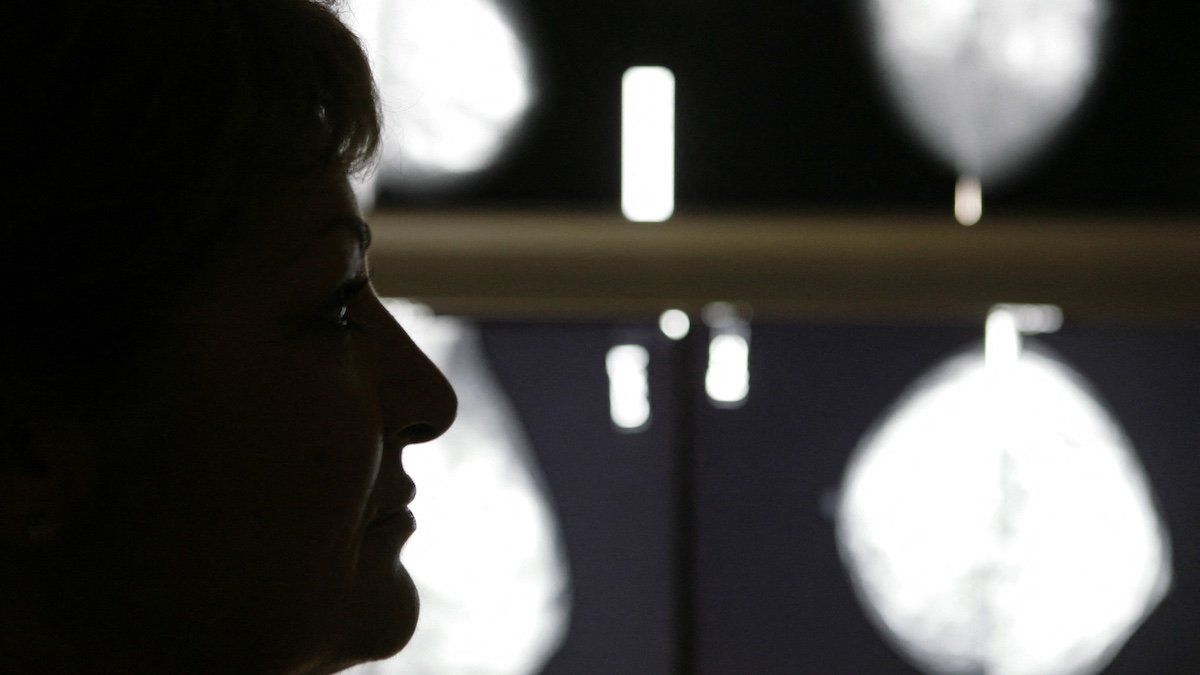FILE PHOTO: Vasiliki Kostoula, a Greek breast cancer patient, listens to her doctor after a radiological medical examination in an Athens hospital October 29, 2008.
REUTERS/Yannis Behrakis
81.6: A new artificial intelligence tool can provide some relief to breast cancer patients experiencing lymphoedema, a painful swelling of the arm that’s a common side effect. It correctly predicted patients that would develop it in 81.6 percent of cases and correctly predicted which patients would not develop it in 72.9%.
294,138: The Internal Revenue Service received 294,138 complaints of identity theft in 2023 and flagged more than 1 million tax returns as potentially fraudulent. AI is set to supercharge tax fraud this season, letting malicious actors more easily impersonate people and obtain sensitive information needed to file fake tax returns in their name.
250 million: The French competition authority fined Google €250 million ($270 million) for failing to notify news publishers in the country that it was training its large language models on their articles. Google has already been forced to pay publishers in Australia and Canada to license their content, and the thorny question of AI training ushers in a whole new squabble for the internet giant.
10: According to a new US government estimate, 10 percent of workers are at high risk of being displaced by artificial intelligence. The findings, from the White House’s Council of Economic Advisers, show that the highest-risk individuals also are the ones with lowest levels of education and income—a reality that could further disadvantage many struggling Americans.